
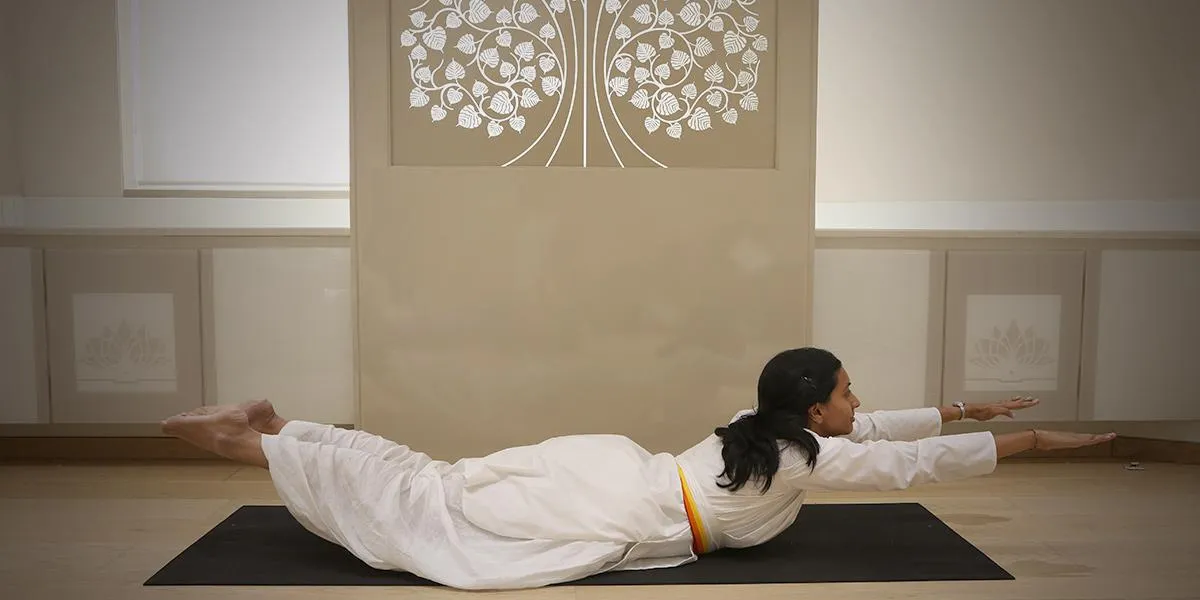
When managing diabetes, even small, consistent changes can make a significant difference. Yoga for diabetes is one such tool—when practiced consistently and correctly, yoga can help support blood sugar control, reduce stress, and improve circulation, which are key
Neelmani Chauhan, a certified yoga instructor at MyYogaTeacher, explains, "Yoga can be incredibly empowering for people managing chronic conditions like diabetes." She adds, “Besides physical postures, the practice of yoga also includes meditation, which reduces stress, relaxes muscles, and relieves tension—several things that specifically help diabetics feel better.”
Continue reading to learn how yoga supports diabetes, 7 simple, safe, and effective yoga poses for diabetes to include in your management plan, and essential safety tips to follow.
Living with Type 1 or Type 2 diabetes requires ongoing attention to your body’s needs. While medical treatment is foundational, many people are exploring holistic practices like yoga to support their health journey.
However, it’s important to always consult your healthcare provider before starting any new physical activity, especially if you're managing blood sugar with medication or insulin.
Once cleared by your doctor, you can incorporate safe and gentle yoga asanas for diabetes into your management plan. Here’s how yoga helps:
Yoga is a beginner-friendly, safe, and effective method for addressing stress, circulation, weight, and sleep—key concerns for individuals with diabetes. Some simple yoga poses for diabetes management include:
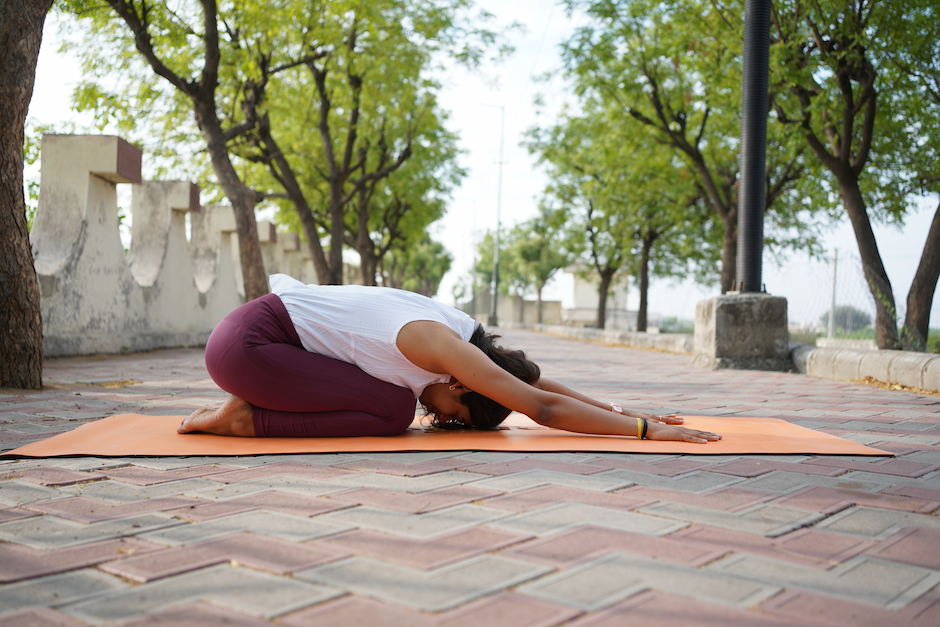
Child’s Pose calms the mind and activates the parasympathetic nervous system—your body’s "rest and digest" mode. It's ideal for reducing stress, a common trigger for blood sugar fluctuations.
Modification: If you have knee sensitivity (common among those with diabetes-related joint stiffness), place a folded blanket between your thighs and calves, or under your torso for support.
.webp)
This pose strengthens leg muscles, improves balance, and enhances concentration, supporting better body awareness, which is key in managing diabetes.
Modification: Use a wall for support if balance feels challenging.
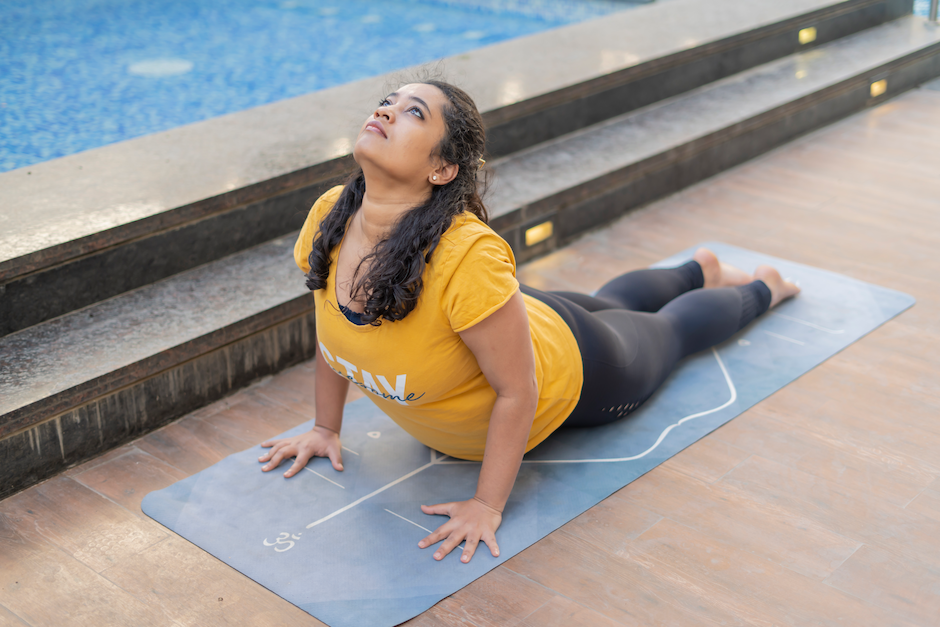
This gentle backbend stimulates abdominal organs, including the pancreas, and promotes spinal flexibility and relaxation, which are all helpful for managing blood sugar levels.
Modification: If the full Cobra is too intense, keep elbows on the floor.
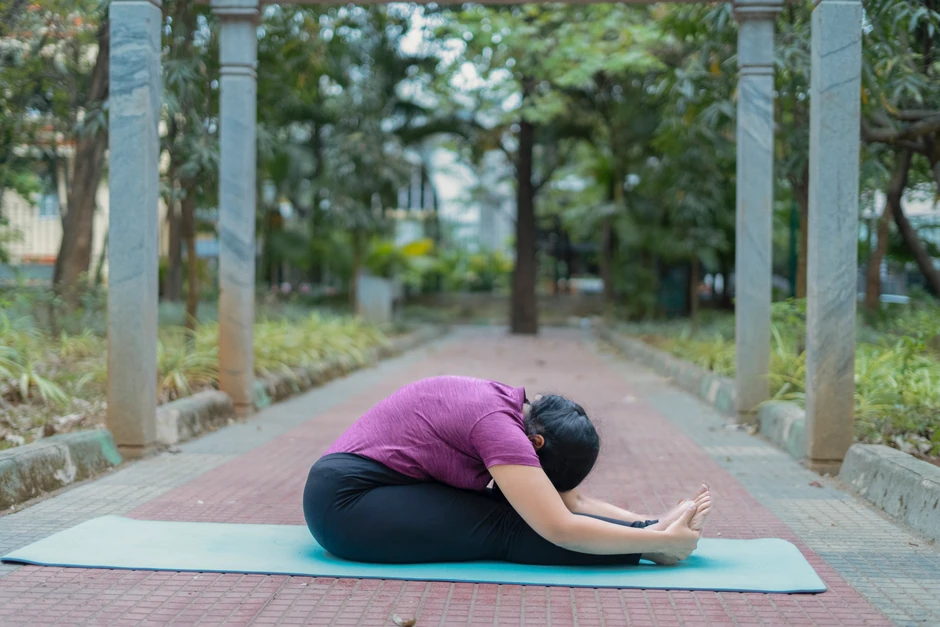
Seated Forward Fold improves blood flow to the abdominal organs and calms the nervous system, promoting internal balance.
Modification: Sit on a folded blanket and use a strap around the feet if the hamstrings are tight.
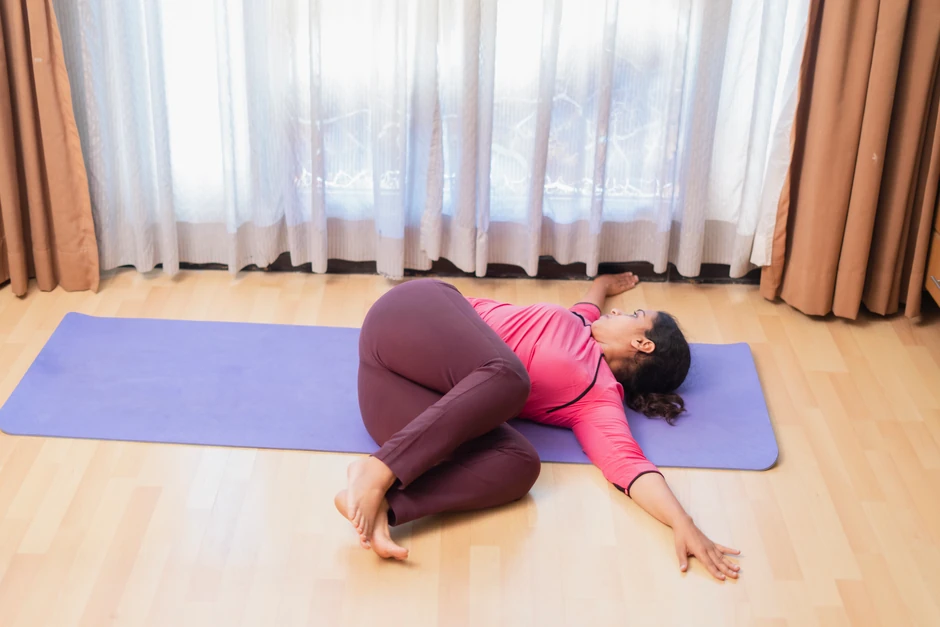
This gentle twist massages the abdominal organs and aids digestion, helpful for detoxification and internal balance.
Modification: Place a bolster or pillow under your knees for support.
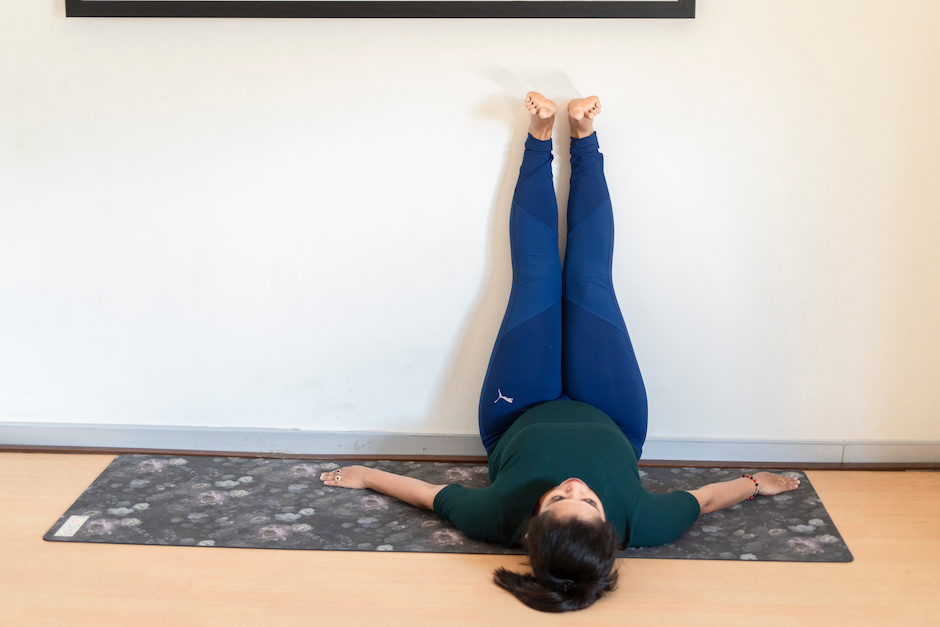
Elevating the legs in this pose supports circulation, and offers deep relaxation, especially useful for those with diabetes-related swelling.
Modification: Place a folded blanket under your hips for comfort.

This ultimate relaxation pose reduces cortisol levels, and enhances mind-body awareness, crucial for long-term health.
Modification: Support your knees with a bolster if lower back discomfort arises.
While these yoga poses for diabetes are generally safe and effective, it’s best to do them under expert guidance for proper form, alignment, and tips on modifications. Book a free 1-on-1 session with an experienced instructor to maximize the benefits of your practice.
Yoga is a supportive tool for managing diabetes, but it's important to approach your practice mindfully when you're dealing with fluctuating blood sugar or diabetes-related complications.
Here are key safety tips to follow:
Establishing a consistent yoga practice can play a powerful role in diabetes control. The key is to start small, stay consistent, and build a routine that suits your lifestyle and energy levels.
This sequence can help wake up the body, improve circulation, and support blood sugar balance for the day ahead.
This routine helps wind down, releases tension, and prepares for restful sleep.
These routines combine movement, breath, and stillness to help you feel calm, centered, and in control—whether you're starting your day or winding down.
Want help creating a routine that fits your schedule and energy levels? Book a free 1-on-1 session with a certified coach today!
Yes, regular yoga practice can support better blood sugar regulation. Yoga lowers stress—which impacts cortisol and glucose levels, improves circulation, and promotes mindful movement, which ultimately supports blood sugar regulation. While yoga isn’t a substitute for medication or medical treatment, it’s a powerful complementary tool.
It’s best to avoid:
When in doubt, work with a certified instructor who understands diabetes-specific modifications.
Start with 3 days a week, for 15–30 minutes. As you build confidence and stamina, you can increase frequency to 5 or more days weekly. Always listen to your body or practice under the guidance of a coach to ensure maximum safety and effectiveness. At the end, remember that consistency matters more than intensity.
Generally, no—especially if you're new to yoga or managing diabetes-related complications. Heat can cause:
Gentle, temperature-neutral environments are best. Try restorative or Hatha-style classes instead.
Every person with diabetes has unique needs, and your yoga practice should reflect that. Whether you’re managing blood sugar, dealing with joint stiffness, or simply looking for a gentle way to stay active with diabetes, personalized instruction can make all the difference.
Ready to take the next step and manage diabetes holistically? Sign up for a free 1-on-1 session today!

Receive personalized guidance tailored to your unique fitness goals, live with a dedicated coach—no credit card required.